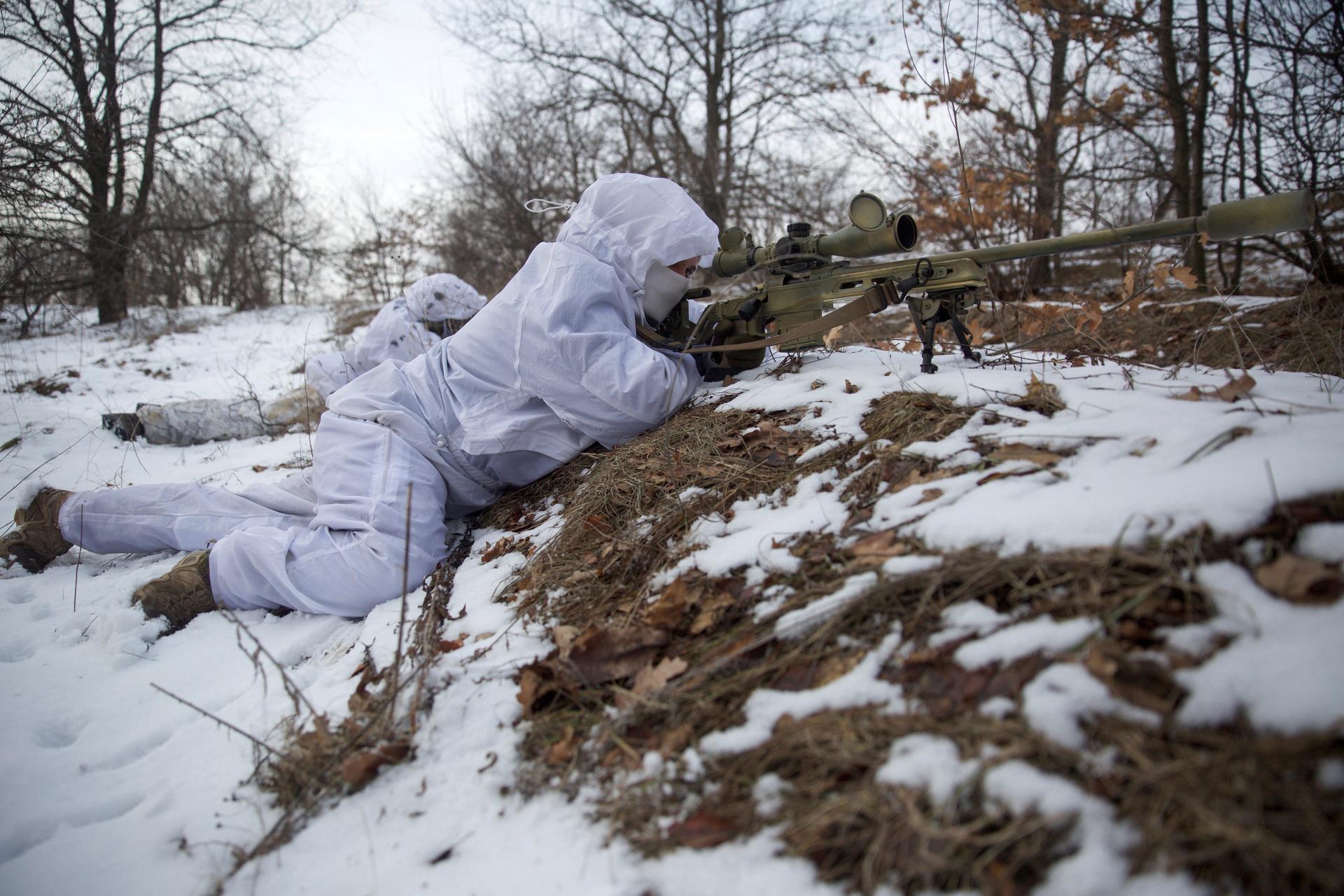NEW YORK – At the same time U.S. diplomats flee Ukraine amid the looming threat of a Russian invasion, Archbishop Borys Gudziak plans to follow through on a pre-planned trip and touch down in the Eastern European nation by week’s end.
“As the diplomats are fleeing Ukraine somebody has to come swim against that current and say at this difficult time we stand with you not only from afar but in your midst,” said Gudziak, head of the Ukrainian Catholic Archeparchy of Philadelphia adding that Ukrainians “at this time of great pressure can use some solidarity.”
The archbishop heads overseas with the 100,000-plus Russian soldiers amassed at Ukraine’s border poised to invade in the near future. President Joe Biden met with North Atlantic Treaty Organization (NATO) countries on Monday, Jan. 24, as each nation mulls how best to respond to Russia and its President Vladimir Putin, who has given no indication of turning back.
Earlier in the day, Defense Secretary Lloyd Austin placed 8,500 U.S. troops on “heightened preparedness to deploy” at Biden’s direction. The U.S. has also sent multiple consignments of weapons to Ukraine in recent days as part of $200 million of defensive aid. The European Union plans to help Ukraine with a 1.2 billion euro – $1.36 billion – financial aid package.
Speaking with Crux, Gudziak stressed the need for democratic countries to come to Ukraine’s defense if Russia invades, or else the consequences could be far reaching.
“It’s very important for the U.S. and other free countries, democratic countries, to realize that Ukraine today is defending our democracy here in the U.S. and Europe,” Gudziak said. “The cost that will fall upon us and the danger that demands toward us by a Russian occupation of Ukraine and the demise of democracy in Ukraine is almost incalculable and who knows what could happen further on.”
Gudziak highlighted the fact that stopping the spread of democracy is at the heart of Russia’s purpose at the Ukrainian border. The archbishop noted that in recent years Ukraine’s democracy has begun to flourish, and therefore Russian President Vladimir Putin and the “kleptocracy that runs Russia” fear that Ukraine’s improving democratic way of life could spread across the border.
“That the virus of freedom and human dignity for all could spread and undermine the position of authoritarian rulers,” Gudziak said. “It is a desire to block the spread of ideas and ideals of freedom and dignity and what better way to keep them from coming to Russia than to try to obliterate them next door and create in Ukraine another zone with authoritarian rule that keeps democratic freedoms outside of the Russian Federation.”
The original purpose of Gudziak’s trip to Ukraine was for a Ukrainian Catholic University board meeting and a priest’s ordination. Gudziak is president of the university located in Lviv, Ukraine.
If Russia were to invade, Gudziak described the bleak circumstances that would unfold for the poor and religious in Ukraine. The archbishop highlighted what has happened since 2014 when Russia invaded and annexed Ukraine’s southern Crimean Peninsula, and backed separatists who overtook large portions of Donetsk and Luhansk regions in the eastern part of the country.
The move by Russia was a response to Ukrainian citizens ousting pro-Russian President Viktor Yanukovych. In the eight years since, the United Nations estimates around 1.5 million people have been displaced and an estimated 14,000 have died, many of whom are civilians. Gudziak also cites that Ukrainian Catholic and Orthodox communities in Crimea and Donbas are being “strangled.”
Gudziak said these are all crises that would be exacerbated if Russia were to invade.
“The partial occupation of two regions [Donetsk and Luhansk] has spawned two million refugees,” Gudziak said. “Now, if you extrapolate that and say 10 regions are occupied, is it possible that you could have 10 million refugees moving west fleeing from the Russian invasion? What does that do to the stability of Europe? This is not just a Ukrainian issue.”
Over the weekend, Gudziak signed a statement alongside the other Ukrainian Catholic Bishops of the United States questioning “when will this stop?!” referring to the now eight years of war initiated by Russia.
“Still, the people of Ukraine courageously endure,” the prelates wrote. “As they stand with a gun to their head, they ask for our solidarity.”
They also highlighted three things people can do to help – pray, be informed and support.
Gudziak explained to Crux that it’s important to stay informed in order to see through disinformation disseminated by Russia. And donating is important to help minimize the impact of a potential long lasting humanitarian crisis.
Praying, though, he said is most important.
“God is the Lord of history and we’ve seen miracles happen,” Gudziak said. “Ukraine became free along with 14 other countries that were liberated as the Soviet Union collapsed and nobody predicted that. Prayer is the way that Jesus fostered his communion with the father and when we foster our communion with God great things happen.”
Follow John Lavenburg on Twitter: @johnlavenburg












